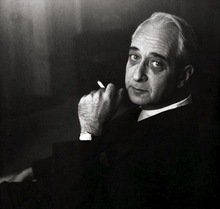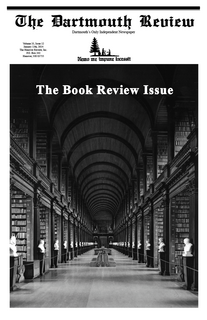Overview
The Harvard Salient was founded in 1981, during a movement of conservative newspapers established in the Ivy League during the beginnings of the Reagan administration.
It publishes biweekly. It has often started heated campus debates, often owing to the "Back Page" feature, which features parodies of Harvard's politically correct culture.
Past editors include the Wall Street Journal 's Naomi Schaefer Riley, the critic and The New York Times columnist Ross Douthat, Commentary contributor Kevin Shapiro, University of Virginia law professor Caleb Nelson, Claremont McKenna College Professor Charles Kesler, and other up-and-coming conservative intellectuals.
The current faculty advisers are William R. Kenan, Jr. Professor of Government Harvey C. Mansfield and Martin Peretz Professor of Yiddish Literature and Professor of Comparative Literature Ruth Wisse.
After a decade of dormancy, the paper was resurrected in 2021. Many of the student contributors publish under pseudonyms.

The Jewish Theological Seminary (JTS) is a Conservative Jewish education organization in New York City, New York. It is one of the academic and spiritual centers of Conservative Judaism and a major center for academic scholarship in Jewish studies. The Jewish Theological Seminary Library is one of the most significant collections of Judaica in the world.

Stephen Jay Greenblatt is an American Shakespearean, literary historian, and author. He has served as the John Cogan University Professor of the Humanities at Harvard University since 2000. Greenblatt is the general editor of The Norton Shakespeare (2015) and the general editor and a contributor to The Norton Anthology of English Literature.

Lionel Mordecai Trilling was an American literary critic, short story writer, essayist, and teacher. He was one of the leading U.S. critics of the 20th century who analyzed the contemporary cultural, social, and political implications of literature. With his wife Diana Trilling, whom he married in 1929, he was a member of the New York Intellectuals and contributor to the Partisan Review.

The Dartmouth Review is a conservative newspaper at Dartmouth College in Hanover, New Hampshire, United States. Founded in 1980 by a number of staffers from the College's daily newspaper, The Dartmouth, the paper is most famous for having spawned other politically conservative U.S. college newspapers that would come to include the Yale Free Press, Carolina Review, The Stanford Review, the Harvard Salient, The California Review, the Princeton Tory, and the Cornell Review.

Harvard Divinity School (HDS) is one of the constituent schools of Harvard University in Cambridge, Massachusetts. The school's mission is to educate its students either in the academic study of religion or for leadership roles in religion, government, and service. It also caters to students from other Harvard schools that are interested in the former field. HDS is among a small group of university-based, non-denominational divinity schools in the United States.
Irving Babbitt was an American academic and literary critic, noted for his founding role in a movement that became known as the New Humanism, a significant influence on literary discussion and conservative thought in the period between 1910 and 1930. He was a cultural critic in the tradition of Matthew Arnold and a consistent opponent of romanticism, as represented by the writings of Jean-Jacques Rousseau. Politically he can, without serious distortion, be called a follower of Aristotle and Edmund Burke. He was an advocate of classical humanism but also offered an ecumenical defense of religion. His humanism implied a broad knowledge of various moral and religious traditions. His book Democracy and Leadership (1924), is regarded as a classic text of political conservatism. Babbitt is regarded as a major influence over American cultural and political conservatism.

Omeljan Yósypovych Pritsak was the first Mykhailo Hrushevsky Professor of Ukrainian History at Harvard University and the founder and first director (1973–1989) of the Harvard Ukrainian Research Institute.

The Harvard Advocate, the art and literary magazine of Harvard College, is the oldest continuously published college art and literary magazine in the United States. The magazine was founded by Charles S. Gage and William G. Peckham in 1866 and, except for a hiatus during the last years of World War II, has published continuously since then. In 1916, The New York Times published a commemoration of the Advocate's fiftieth anniversary. Fifty years after that, Donald Hall wrote in The New York Times Book Review that "In the world of the college – where every generation is born, grows old and dies in four years – it is rare for an institution to survive a decade, much less a century. Yet the Harvard Advocate, the venerable undergraduate literary magazine, celebrated its centennial this month." Its current offices are a two-story wood-frame house at 21 South Street, near Harvard Square and the University campus.
Victor Henry Mair is an American sinologist. He is a professor of Chinese at the University of Pennsylvania. Among other accomplishments, Mair has edited the standard Columbia History of Chinese Literature and the Columbia Anthology of Traditional Chinese Literature. Mair is the series editor of the Cambria Sinophone World Series, and his book coauthored with Miriam Robbins Dexter, Sacred Display: Divine and Magical Female Figures of Eurasia, won the Sarasvati Award for the Best Nonfiction Book in Women and Mythology.

Glenn Cartman Loury is an American economist, academic, and author. In 1982, at the age of 33, he became the first African American tenured professor of economics in the history of Harvard University. He is the Merton P. Stoltz Professor of the Social Sciences and Professor of Economics at Brown University, where he has taught since 2005.

George Lyman Kittredge was a professor of English literature at Harvard University. His scholarly edition of the works of William Shakespeare was influential in the early 20th century. He was also involved in American folklore studies and was instrumental in the formation and management of the Harvard University Press. One of his better-known books concerned witchcraft in England.
Judith Nisse Shklar was a philosopher and political theorist who studied the history of political thought, notably that of the Enlightenment period. She was appointed the John Cowles Professor of Government at Harvard University in 1980.
The Northwestern University Law Review is a law review and student organization at Northwestern University School of Law. The Law Review's primary purpose is to publish a journal of broad legal scholarship. The Law Review publishes six issues each year. Student editors make the editorial and organizational decisions and select articles submitted by professors, judges, and practitioners, as well as student pieces. The Law Review extended its presence onto the web in 2006 and regularly publishes scholarly pieces on Northwestern University Law Review Online .

Howard Lasnik is a Distinguished University Professor in the Department of Linguistics at the University of Maryland.
The Harvard Law Record is an independent student-edited newspaper based at Harvard Law School. Founded in 1946, it is the oldest law school newspaper in the United States.
Thomas Pavel is a literary theorist, critic, and novelist currently teaching at the University of Chicago.
Jaan Puhvel is an Estonian comparative linguist and comparative mythologist who specializes in Indo-European studies.

Jill Lepore is an American historian and journalist. She is the David Woods Kemper ’41 Professor of American History at Harvard University and a staff writer at The New Yorker, where she has contributed since 2005. She writes about American history, law, literature, and politics.
The political views of American academics began to receive attention in the 1930s, and investigation into faculty political views expanded rapidly after the rise of McCarthyism. Demographic surveys of faculty that began in the 1950s and continue to the present have found higher percentages of liberals than of conservatives, particularly among those who work in the humanities and social sciences. Researchers and pundits disagree about survey methodology and about the interpretations of the findings.










